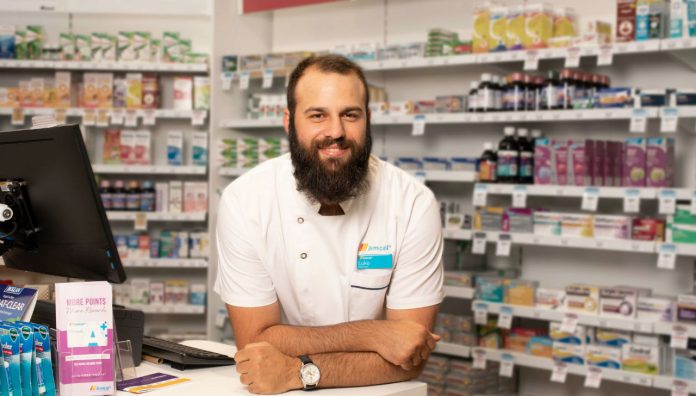Luke Vrankovich MPS, a former locum and one half of the Roaming Pharmacist duo, gained an online following living life on the road. So how is pharmacy ownership working out?
Can you describe the ethos of The Roaming Pharmacist?
It was started by Liam Murphy a few years ago. It was a way, using social media, to show how you can be a locum and travel at the same time. It was also a way to educate the public on some key ideas that are important to Liam, such as harm minimisation through pill testing at festivals. I came on board and began locuming around the country, incorporating my passion into my work, which is mental health. Ethos? I’d say sharing our adventures and educating along the way.
What are some of the most interesting places that your work as a locum has taken you?
I’ve been all over. I took a road trip down the coast of New South Wales (NSW) and Victoria – I ended up rock climbing in Arapiles. One of my favourite places was Broome in Western Australia (WA) – really interesting work and a good group of people. Another favourite was Merimbula in NSW – a great sense of community. The pharmacy staff made me feel very welcome.
How did you adapt to the different legislation when moving between states?
It required a bit of brain power to look out for the differences, mainly with the scripts on file and Schedule 8 medicines. The easiest way to adapt was to do some research beforehand so I would have a rough idea of how things worked, but I also leaned on the other pharmacists around me. I didn’t necessarily need to know everything in intricate detail before I got there, it was more about knowing what questions I needed to ask when certain situations arose.
You now own a pharmacy in Townsville. Why did you make the switch?
Just over a year ago I was on a six-month trip around Australia, but I only made it to Carnarvon in WA when I got a call from my former boss in Coffs Harbour about an opportunity to run a pharmacy in Townsville. I thought it might be a while before another opportunity presented itself, so I took the plunge. It’s a very different lifestyle to working as a locum and comes with its own set of challenges, but I’ve always wanted to own my own pharmacy so I could prepare myself and my family for the future.
You’re a former mental health first aid facilitator. Do you use these skills a lot in your pharmacy practice?
I use them every day. What’s great about mental health first aid is that it teaches you how to pick up on signs and approach conversations with more confidence. In a busy pharmacy, it’s easy to get caught in the cycle of receiving a repeat prescription for escitalopram, for example, and just dispense it. But the training empowers you to want to have that conversation with every person that comes through who takes an antidepressant – whether it’s new or continued. It’s important to ask how it’s been working for them, and if they’ve been on it for a while, if they are happy with the results. Sometimes this leads to deeper conversations around efficacy and adherence, which almost always turns to treatment recommendations or referrals.
Do you think other pharmacists would benefit from training in mental health first aid?
A lot of pharmacists lack confidence to approach the conversations around mental health, particularly if a person has suicidal thoughts and they are voicing that within the pharmacy. It’s definitely not an easy situation to be in and it takes its toll. Nothing will ever fully prepare you, but the confidence you develop through training, along with the knowledge about the right referral points, particularly in acute situations, certainly helps.
You’re a former ECP of the Year, in 2017. Where do you see pharmacy practice going in the future?
I see pharmacists specialising in one way or another. PSA is doing great work with pharmacists in general practice and pharmacist vaccination services have also been expanding. A lot of pharmacies try and be everything to everyone, but it’s not sustainable for community pharmacies to be across all areas of health care. I think the profession will branch out further into specialties and that the pathways will become more official.



 Dr Peter Tenni[/caption]
Dr Peter Tenni[/caption]
 How should we deprescribe gabapentinoids, according to the Maudsley Deprescribing Guidelines[/caption]
How should we deprescribe gabapentinoids, according to the Maudsley Deprescribing Guidelines[/caption]



 Pharmacists have always prescribed, but they have the potential to prescribe much more
Pharmacists have always prescribed, but they have the potential to prescribe much more





